Mediterranean Coast Day is celebrated on September 25th.
September 23, 2018 - "The Mediterranean monk seal is endangered because people have destroyed their homes with garbage and now there are very few". “We must not accidentally throw away plastic waste in the sea, because it can poison the animals”.
This is just some of what could be heard on Saturday morning from the mouths of children after the workshop by the Small Philosophy Association, entitled "Anuška, Mediterranean monk seal", held in Strossmayer Park (Đardin Park) in Split as part of the Mediterranean Coast Day program. For the youngest in attendance who, with their questions, imaginative remarks and interesting conclusions, revived Đardin, several workshops were organized according to age, and common themes related to the plant and animal world of the Mediterranean and preserving the environment.
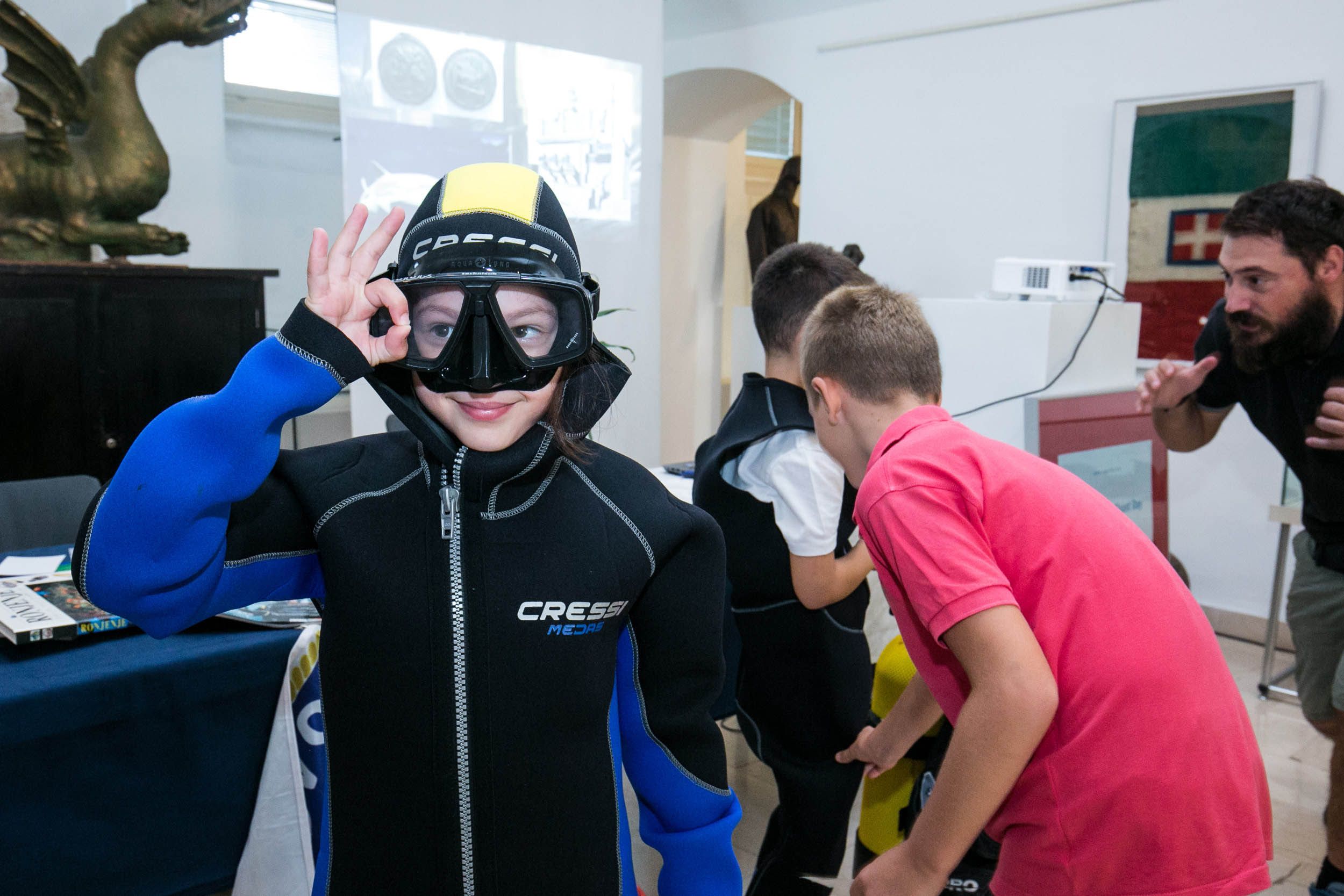
Activists of the Small Philosophy Association have taken care to provide valuable information to the audience through entertainment, and held three different workshops: "Photo hunting" for teenagers - an interactive game of searching for and photographing the default objects by walking around the city, the educational quiz "What do I know about the Mediterranean?" and the "Mediterranean" tournament for school children.
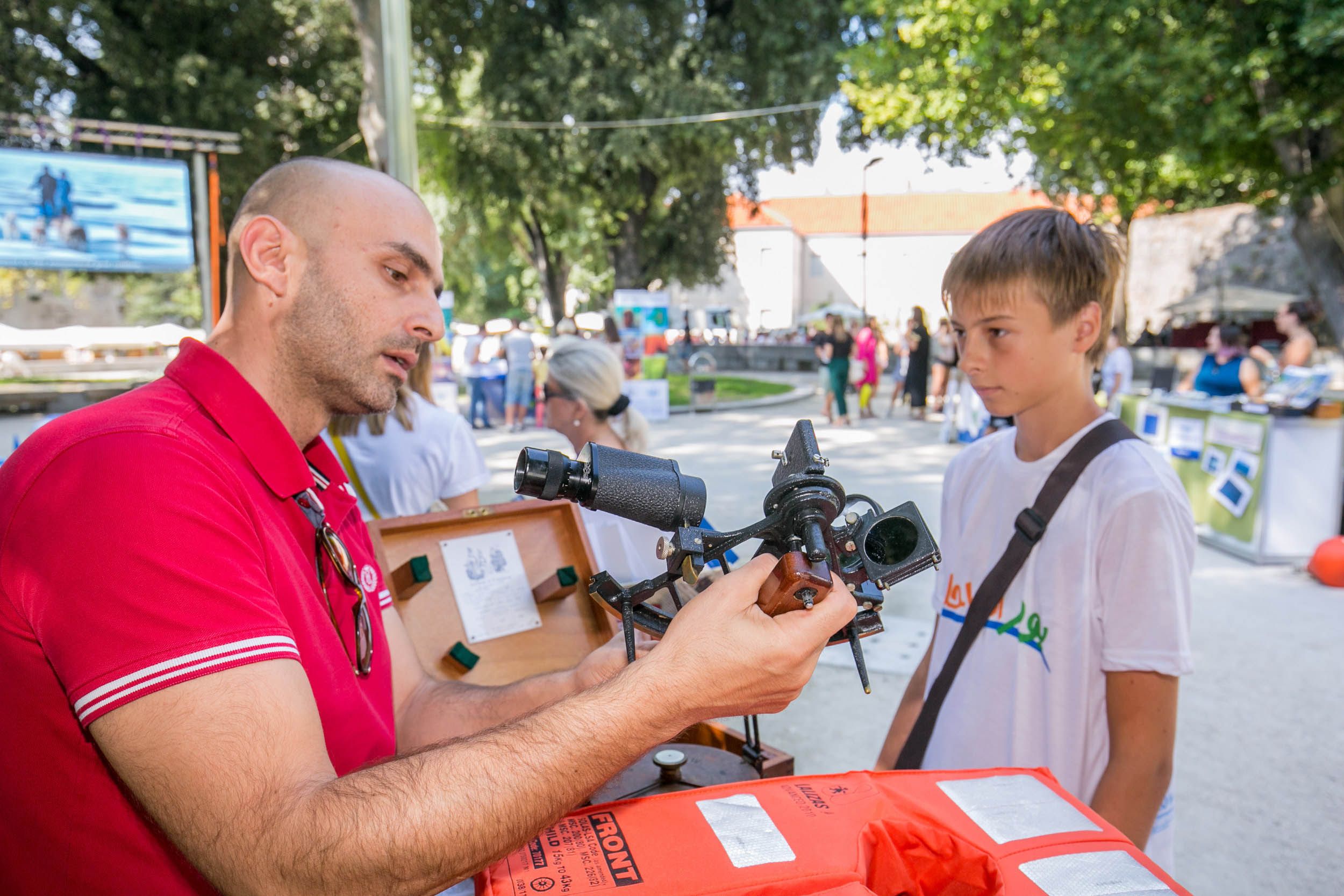
"The association is mostly concerned with the development of critical thinking, and a research project on the representation of ecological issues is being prepared through the school program,” said the President of the Faculty of Philosophy and Professor at the Split Faculty of Philosophy, Bruno Ćurko. He also announced that a book with fifty photos of Stipe Surać will soon be released, whose "Legend of the Mediterranean" exhibition opened this year's Mediterranean Coast Day and can be seen in the Split City Museum Gallery. Each photo will be accompanied by a story.
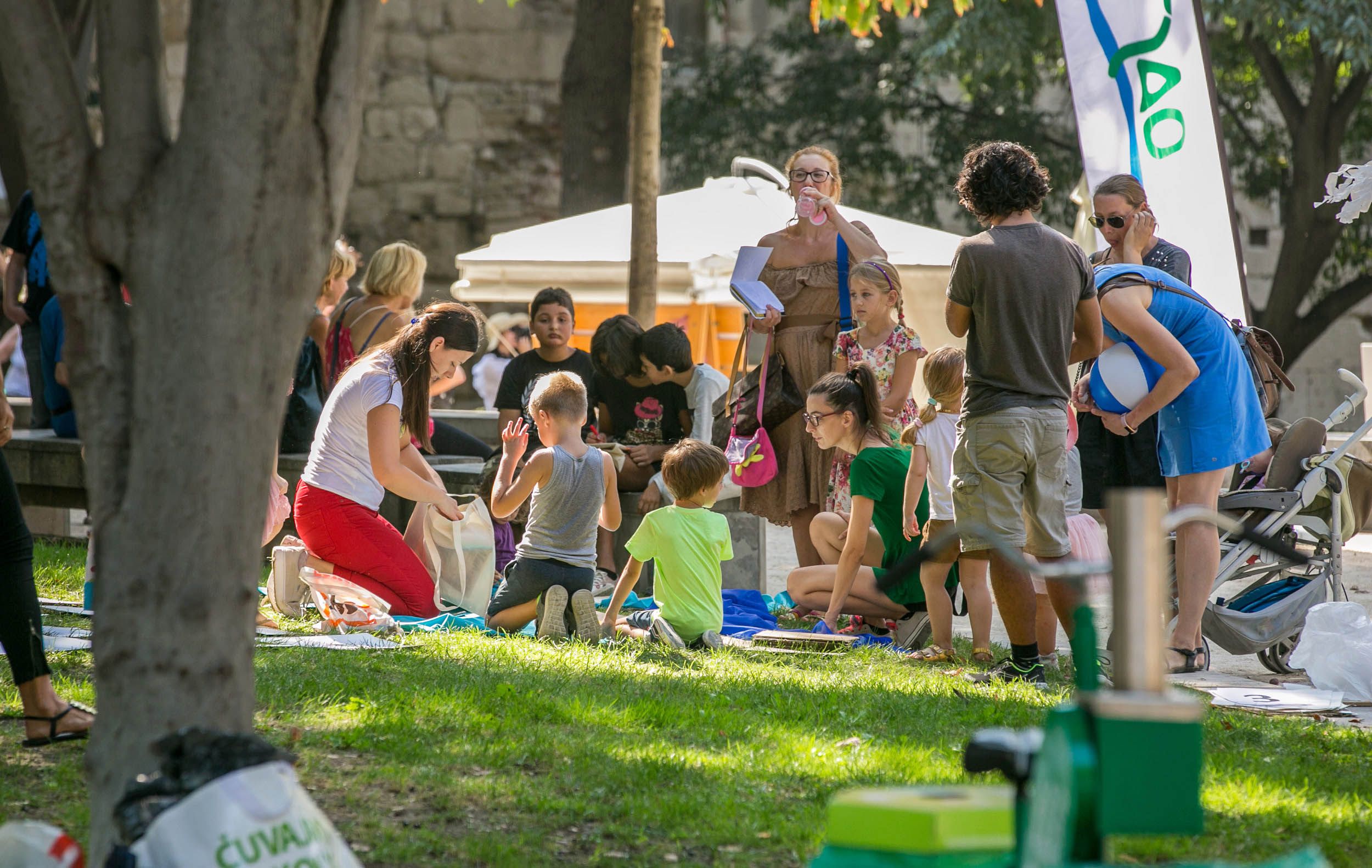
The ReCan Foundation presented the project "ReCan Bicycle: Pedaling to the First Stage of Recycling Tin Cans“ and could be tested by all interested visitors. The intention of the project is to become a link between tin producers, beverage distributors, consumers, utilities and purchasing centers for recycled materials, explained Milica Vujović, project coordinator for Montenegro. She also revealed that aluminum must be recycled because it takes more than two decades for a single tin can to decompose.
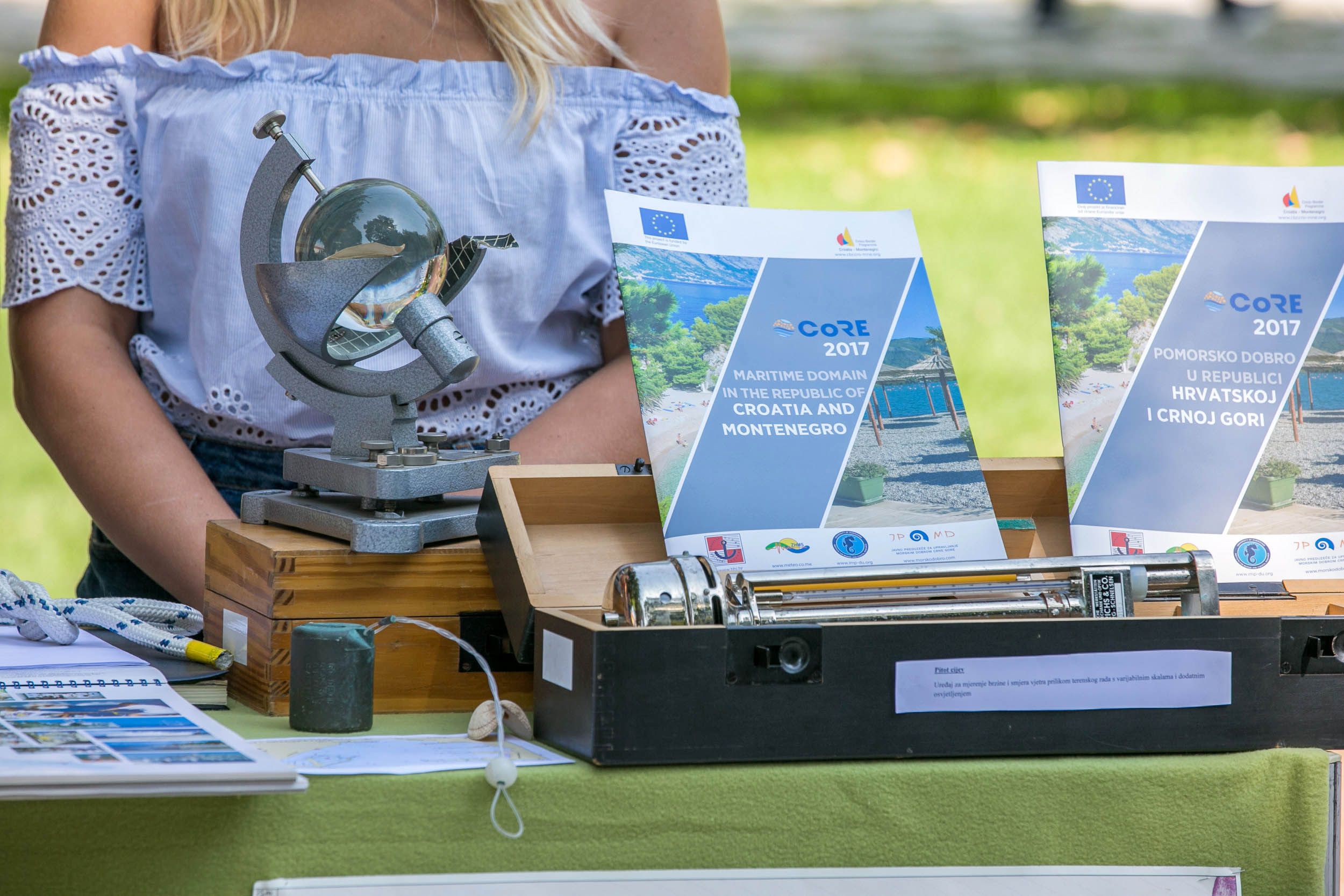
Also lively was the promotional stand of the University's Department of Marine Studies, where visitors could see the texture of shells and crabs and became acquainted with marine species in the aquarium. Due to the increasing temperature and submarine ecosystems, the recent occurrence of invasive species, such as invasive oysters, has been recorded in the last few years, according to an expert associate at the Department of Teaching, Jelena Nejašmić.
The activities at the promotional stands were presented by the organizer of Mediterranean Coast Day, the Coastal Management Center (PAP/RAC) and partners: Croatian Hydrographic Institute, RERA SD, Department of Tourism and Maritime Administration of Split-Dalmatia County, Faculty of Economics, Faculty of Maritime Studies and the Blue World Institute, Sunce Association, CEDRA, the Kaštela Museum, the Vladimir Nazor Gymnasium and the Faculty of Civil Engineering, Architecture and Geodesy.
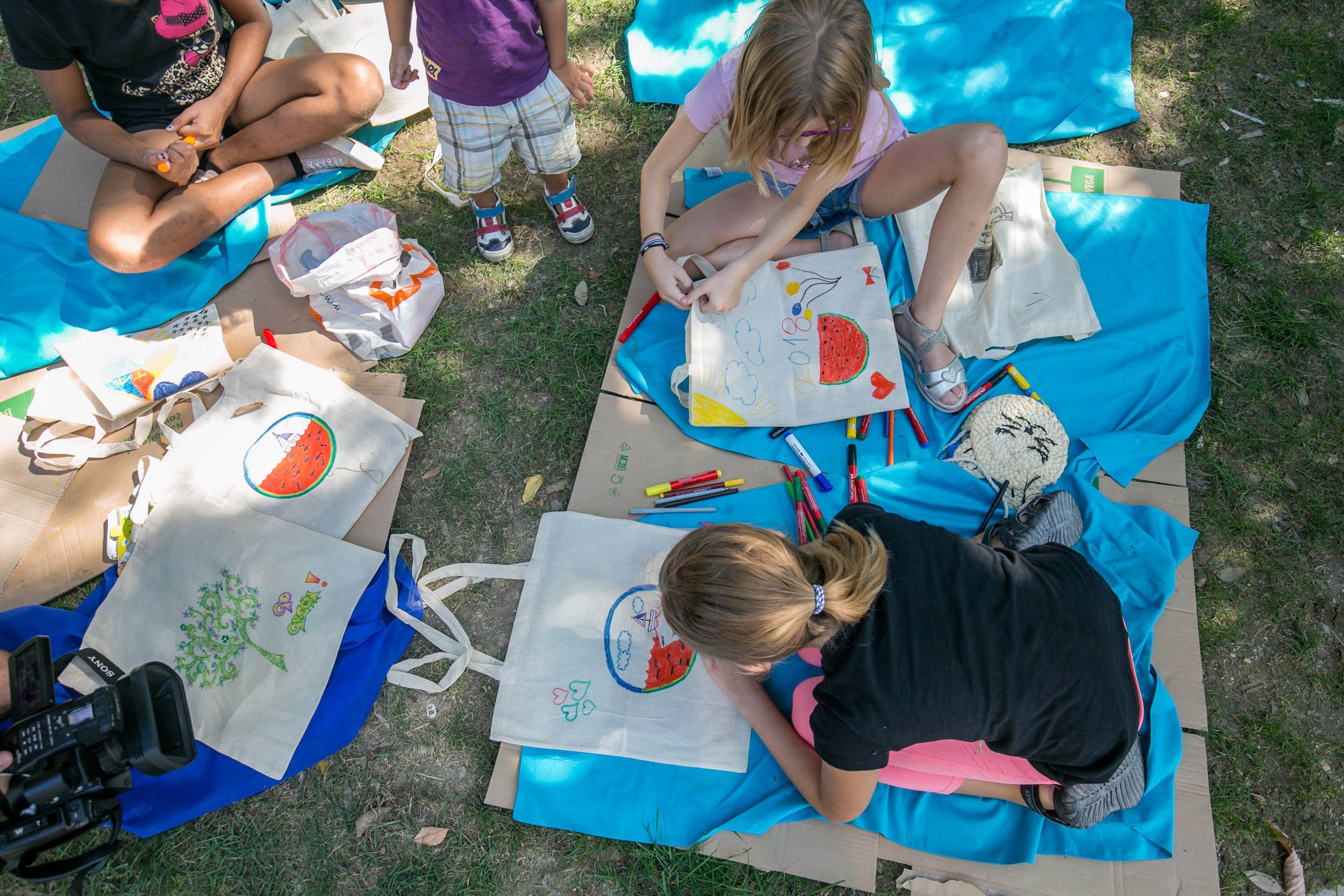
For those who did not make it on Saturday, all booths will be open again on Sunday, September 23 from 16.00 to 19.30 and Tuesday, September 25 from 14.00 to 17.00.
You can check the event program at www.coastday.org.


